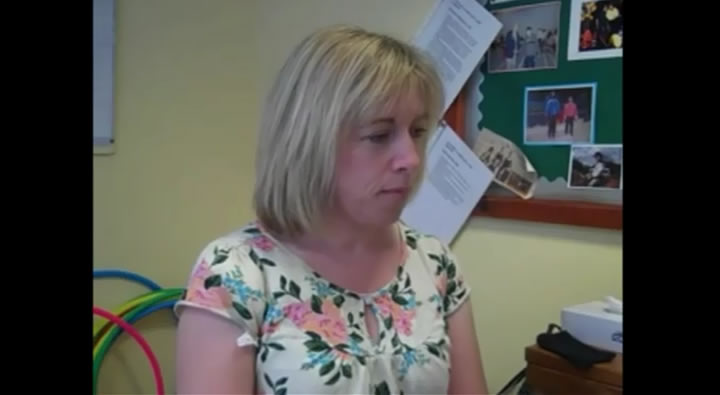Research is key to the development of professional practice that improves outcomes for children with SLD/PMLD/CLDD.
Research inquiry involves deep questioning of 'how' and 'why' things are done. The experience and knowledge of practitioners are major attributes to bring to the research arena and, combined with a systematic approach to gathering evidence and analysing its significance, can produce a strong evidence base.
Teachers, teaching assistants and other school staff have found that engaging in and with research can be highly rewarding and provide exciting opportunities for professional development.
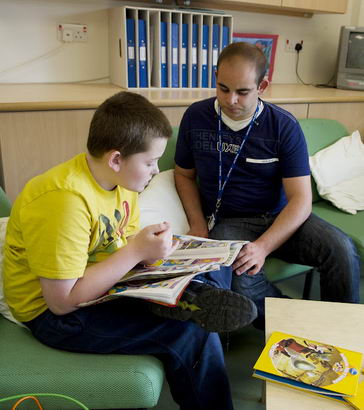
Professional development for teachers is high on the government agenda and evidence-based practice is a compelling force
within
school improvement.
The benefits of school-based inquiry may be realised at individual, class, department and whole school levels. By choosing to research some facet of our professional experience (eg identifying the needs of a child with a rare disorder) we can generate knowledge and understanding which translates into more effective practice.
The point of school-based research is to make a difference to the students that we teach. Listen to this teacher talking about the outcomes of the Complex Learning Difficulties and Disabilities Research Project (Carpenter et al, 2011a,b) for a young boy in her class.
Research is not distant from practice but its lifeblood. It's what excellent teachers do.
Mary Whitehead, Head teacher, Halstow Primary School
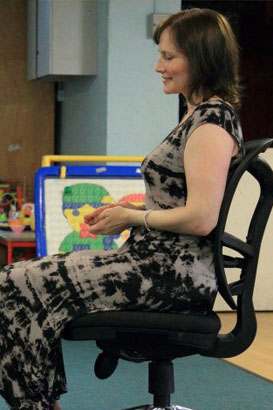
It has made me
definitely change
the way I look at
children... Through
the [research]
project we have something to back up what we are saying about the learning of children.
Carpenter et al, 2011a,b
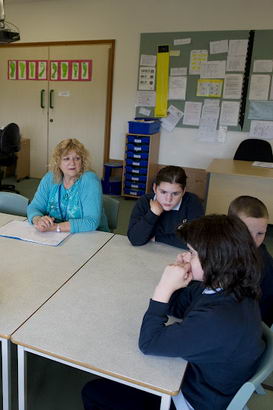
Research can take many different forms, but some principles are common to all good research:
- There is a clear statement of research aims, which defines the research question and is informed by current knowledge;
- A disciplined approach is taken to ensure reliability and consistency of observation and interpretation;
- There is an information sheet for participants which sets out clearly what the research is about and informed consent is obtained.
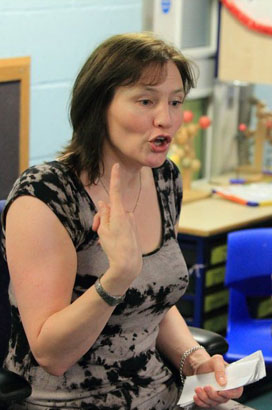
- The research should have appropriate and sufficient resources;
- Reflection on the information generated from the research will be disseminated, at least to those participating;
- The research should be ethical and not harmful in any way to the participants;
- The complete research process should be carried out
with impartiality.

Carpenter, B., Egerton, J., Cockbill, B. and Owen, T. (2011) Having new eyes: engaging children and young people with complex learning difficulties and disabilities in learning, PMLD-Link, 23 (2), 4-6.
Carpenter, B., Egerton, J., Brooks, T., Cockbill, B., Fotheringham, J. and Rawson, H. (2011a,b) The Complex Learning Difficulties and Disabilities Research Project: Developing pathways to personalised learning. London: Specialist Schools and Academies Trust (now The Schools Network) (accessed 12.1.12).
General Teaching Council for England (2006) Using Research in Your School and Your Teaching: Research-engaged professional practice. London: GTC (accessed 12.1.12).

You might also be interested in reading one or more of the following books to support Level C:
Bell, J. (2010) Doing Your Research Project: A Guide for First-Time Researchers in Education, Health and Social Science. Maidenhead: Open University Press.
Blaxter, L., Hughes, C. and Tight, M. (2006) How to Research (3rd edition). Buckingham: Open University Press.
Carpenter, B. and Egerton, J. (eds) (2007) New Horizons in Special Education: Evidence-based practice in action. Clent: Sunfield Publications.
Cryer, P. (2006) The Research Student's Guide to Success (3rd edn). Buckingham: Open University Press.

Denscombe, M. (2002) Ground Rules for Good Research. Maidenhead: Open University Press.
Denscombe, M. (2010) The Good Research Guide for Small Scale Social Research Projects (4th edn). Maidenhead: Open University Press.
Jones, P., Whitehurst, T. and Egerton, J. (eds) (2012) Creating Meaningful Inquiry in Inclusive Classrooms: Practitioners' stories of research. London: Routledge.
Porter, J. and Lacey, P. (2005) Researching Learning Difficulties: A guide for practitioners. London: Paul Chapman.
Roberts-Holmes, G. (2011) Doing Your Early Years Action Research Project: A step by step guide (2nd edn). London: Sage.

Robson, C. (2011) Real World Research (3rd edition). Oxford: Blackwell.
Rose, R. and Grosvenor, I. (2001) Doing Research in Special Education: Ideas into Practice. London: David Fulton.
Also, visit the National Foundation for Educational Research site.
